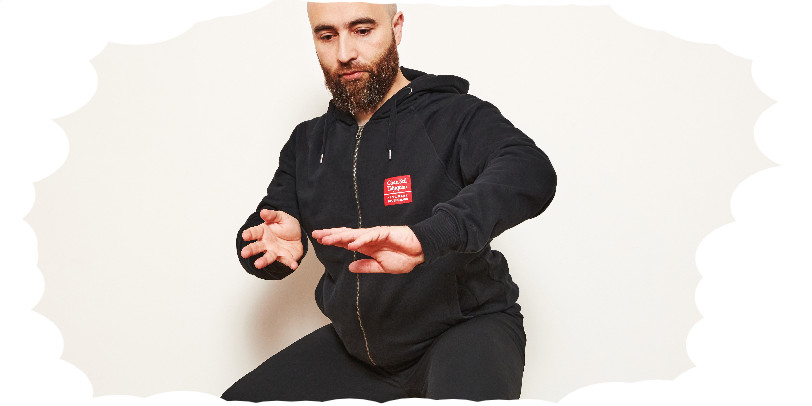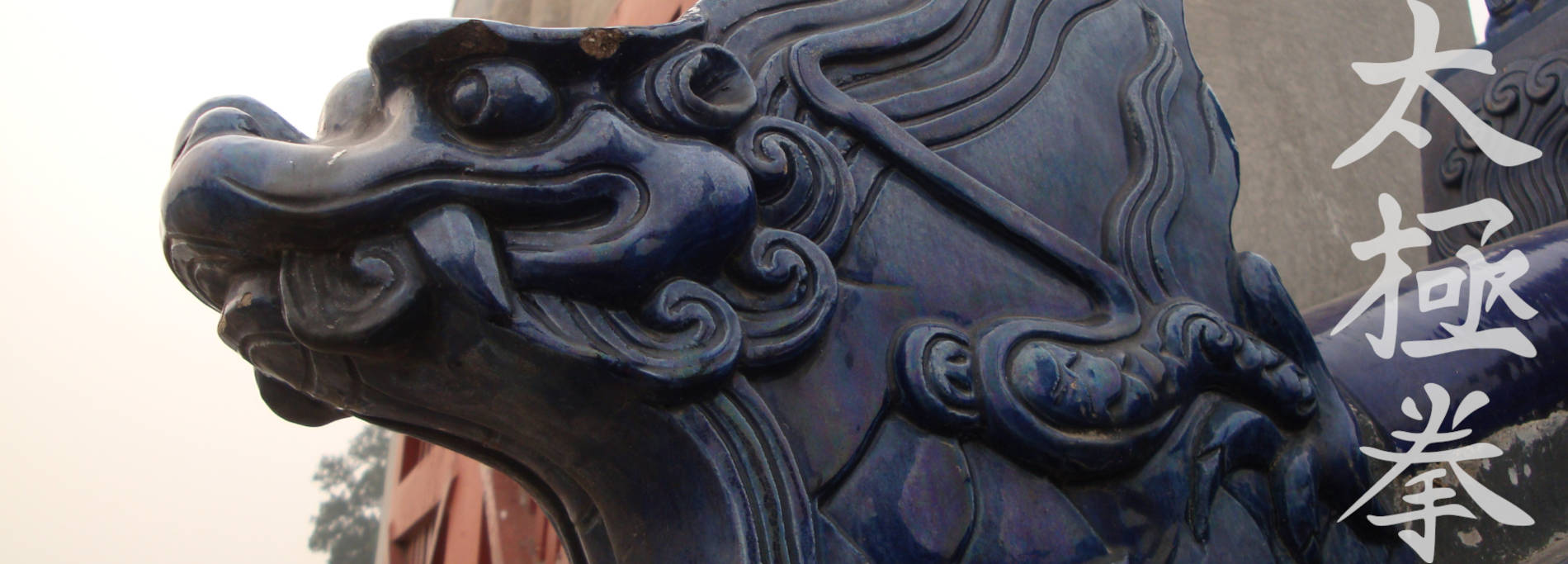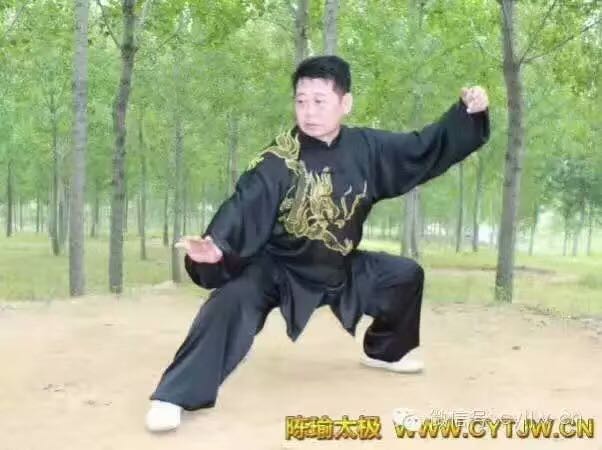Maybe it makes sense to say something about my own journey before someone might want to ask me to set out on a Taijiquan journey and learn from me. So I want to share some info on how I learned what I teach. If you want to see some current action you'll find it on my instagram channel :)
Starting with martial arts

The first time I heard about Taijiquan was when I studied in the United Kingdom. A friend of mine told me about a martial art mixing the martial with meditation. I had learned a bit of Taekwondo when I was younger and had always kept those practices alive in a way, so I got really interested. Also I always felt I would go into meditation one day. But I knew I wouldn't have the right motivation yet to focus on it properly back then. Taijiquan seemed like the reasonable choice to combine those interests.
Taijiquan beginnings
At that time I wouldn't have thought I might one day end up learning from Chen Yu, one of the greatest Taijiquan masters on this planet. And thinking back about my journey it still feels fateful to me how this happened and almost like I was being led onto this journey. So in 1996 or 1997 I set out to do "Tai-Chi" as most people called it back then, and I ended up in a school teaching Chinese Boxing, an eclectic boxing style based on several Chinese martial arts. Most of them are categorized as internal martial arts styles, like Baguazhang, Xingyiquan and Taijiquan, but it also contained elements of Wing Chun and other martial arts. In retrospect I would say it was a very practical approach to self-defense and fighting, based on a number of specific body mechanics and tactics. The single styles were not deemed too important in that school but some elements were taken from them much in a Jeet Kun Do like way. But it taught how to fight so that practical approach was good.
Chen Taijiquan
At some point I had health issues (though I was still young) and thought the boxing that I had learned should somehow help me to improve my health. But the practice I did was not really helping me back then. I thought maybe I should dig deeper and found Chen Taijiquan. I quickly became fascinated with the art, just like with the syncretic Chinese Boxing before, and started to practice intensely in the lineage of Chen Xiaowang, my teacher's cousin. I studied with him on workshops and with several other teachers in that line who are all well-known and I learned most forms of the system and some basic concepts. Just like with the Chinese Boxing before I was a serious practioner and people started to know me for that reason. I never really wanted to become a teacher, I rather wanted to develop a diligent practice and skill. Back then I met many nice people and am thankful for what I learned. But honestly speaking I remained clueless in a way (though I didn't realize it at that point) with no real understanding of the art I loved so much.
Gongfu Frame of Chen Family Taijiquan

At some point a photo of Chen Yu caught my eye. I still remember I immediately knew that I had to learn from him. It was like a feeling inside that one day I would. But it still took me some time, until February 2007 to be exact, that I would travel to Beijing again (I had been to China before) and call him up. As it was snowing outside he came to my hotel room every day to teach. We basically spend 10 days or so together like this. I also went to his home where he gave me some DVDs as presents and we went shopping together which was very entertaining. He was a great host. In 2007 I visited Chen Yu more and in 2008 I went abroad to deepen my practice and train full-time in his method.
Now that I write this and think back I cannot believe how lucky I was. Of course it was not only luck, but there was a lot of sincerity, commitment and determination and this fateful feeling that it was 100% right to walk this path. I loved all the details Chen Yu explained which I had not known before and was awed by the multitude of martial applications he showed. And I guess Chen Yu saw that I was very serious about the practice, he always said this practice is 认真的, serious or conscientious training. It is not necessarily common for a traditional Taijiquan teacher in China to teach so openly, it usually depends on couple of different aspects. There was a lot of great stuff, sometimes almost unbelievable. And most of the methods he explained where practically impossible to do in the beginning, though I was already well-trained. I simply did not understand the progression in the art, yet. But steadily I rewrote all the patterns I had learned before, added the powers and forces inside, and all the other methods of traditional Chen Taijiquan.

I did a lot of research at that time and it was important for me to read the Chinese sources and not to depend anymore on Western essays which often tend to mystify aspects of the art. Around 2010 I published a book on the development of Chen Taijiquan after I had learned to really understand the concepts and the body work under Chen Yu's practical guidance. Shifu calls our branch of Chen Taijiquan the 家传陈氏太极拳功夫架 "Gongfu Frame of Chen Taijiquan which has been transmitted inside the Family." There is much confusion about the frames in this art, people split it up into laojia "old frame" and xinjia "new frame" and so on. People from the outside usually see the choreography of our forms and call us "xinjia". And while I do understand this (I did so myself a long time ago) I know that the internal practice, the body mechanics, the forces and so on have usually little in common with what people call "xinjia". For us, the forms and the methods of the art have been passed on in direct line from Chen Changxing to Chen Fake, Chen Zhaokui and to my teacher Chen Yu. The forms and methods are supposed to create gongfu, hence the name shifu gives to his teaching of the boxing art.
Learning with a great master sounds great and intriguing, but it is not always easy. There is so much to learn, and not only the art, which is difficult enough in its complexity, but also the language, the culture and so on. After spending much time learning and training I did baishi, the official ceremony to become a disciple of one's shifu. There is mutual commitment and responsibility to learn and teach the boxing so it stays intact for future generations. This is something I feel everyday and my main motivation to teach!

Shifu was usually pleased with my training and he was always very kind to teach me in much detail. I remember when I went to his home with another friend. Apparently we came too early to class in the morning so we woke him up. He came out, looked at us and mumbled: "Warm up a bit, I'll be back." When he came back he said: "I will now teach you everything I know about this movement". I was overwhelmed and awed by the precision and clarity of his method, how analytical and down-to-earth and how truly holistic and practical it is. It is an experience burnt into my memory. Being a disciple, sometimes accompanying him on a journey, learning alongside his son or his wife, or together with one's gongfu brothers and sisters becomes something normal then. To share, to train, to eat together, to sweat and to laugh. Chen Yu once said: "During training, I am your teacher and you are my disciple. But apart from that, we are just one family." I still think about this and how often situational hierarchies based on competence (like in a classical learning environment) become mixed up with general social hierarchies and how problematic this can be.
Based on my experiences many questions people ask on the internet, about secrets in Taijiquan, charlatanry or if it is truly a martial art and all these things at some point became petty or trivial. The method has a lot of depth, but it is also very pragmatic, self-empowering, sober and straightforward. Shifu told me quite often: "Now I showed you all the details, but you have to think yourself and use your brain to apply those things." There are so many stories to tell.
Continuing the journey

Maybe equally important to learning an art is preserving it. In 2010 I started to teach in Berlin, Germany, and went back to China as often as I could. I founded the Chen-Style Taijiquan Network with my Gongfu-brother here in Germany, Konstantin Berberich, and we organized many trips to Beijing so our students would get to know Chen Yu and feel his skill. And also so our students could understand the authenticity of our transmission and Chen Yu could see the results of his teaching. We mostly did cannon fist and pushhands on these journeys and we assisted teaching in his seminars.
Though we stopped organizing these group events at some point because of the stress and time involved some of our students still go to Beijing to train with our Chinese gongfu family. And of course I also go back to Beijing when the time allows to visit my gongfu family and to spend time together. And maybe we will eventually do another group training trip sometime in the future, we will see. I promote this art as best as I can, teaching in my base in Berlin, and also online and on national and international workshops. My aim is to make the original Taijiquan more accessible in order to preserve it and enthusiasts can use it for personal growth and cultivation.
Preserving Chen Taijiquan feels like a nuanced responsibility to me, one that requires balancing tradition with thoughtful evolution. As a disciple of this art, I feel the weight of its centuries-old legacy and the roots that anchor it. My task, as I see it, is to honor these foundations by upholding the integrity of its teachings. But I also believe that true preservation isn’t about resisting change; it’s about allowing Chen Taijiquan to adapt so we can integrate it fully on a personal level and so it stays relevant on a social level. This is how Chen Yu taught the art to me. And just as importantly, I think we need to foster a culture of transmission that isn’t dependent on a single teacher. By developing a more community-based approach, we’re creating a resilient, adaptable tradition - just as those Chinese gongfu traditions which survived over the ages have always been. This kind of communal stewardship is what, I hope, will allow Chen Taijiquan to thrive for the next generations, enriched by diverse voices yet always true to its origins.
Now I talked a lot about myself... something I actually don't really like to do :) Here is what other people say about training with me, the quotes are in English, German or Chinese language. Here is a Google-translated version of the quotes. Below you will also find contact details to connect to my gongfu family in Beijing. Take care!
Videos, interviews and podcasts
Here is a Chen Taijiquan cannon fist excerpt:
Chen Taijiquan yilu first road excerpts:
Form details & applications:
Oldie but goldie, our old trailer :)
Chen-Style Taijiquan and Martial Arts Interwiews & Podcasts:
You can find my instagram account here. Here are some interviews with me, if you prefer less text and more audio... Thanks to Byron Jacobs from Mushin Martial Culture, Ken Gullette and his Internal Fighting Arts and Will Wain-Williams from Monkey Steals Peach, Ryan from the Talking Fists Podcast, Daniel from the Gongfu Crew Podcast and Randel and Owen from the Kungfu Conversations Podcast. These are great people and you should take a look at their other stuff, too!
Part 2
Interviews with Nabil about Chen Taijiquan
Daoist Aarts Organization International published an interview with Nabil on his personal journey and also the development and methodology of Chen Taijiquan:
Graham Barlow from The Tai Chi Notebook did a podcast with me on the training, the martial side and the bodywork of Chen Taijiquan.
Some form work and applications from Chen-Style Taijiquan
Workshop-Snippets Chen-Style Taijiquan:
Here is a workshop review from one of my workshops in Philadelphia!
Contact details Beijing:
|
|
传播武术、弘扬民族精神 陈瑜 陈家沟陈氏第十九世嫡宗传人 北京武协陈照奎太极拳专业委员会 主任 陈氏太极拳家传功夫架推广中心 主任 陈氏太极拳家传功夫架推广中心宗旨:完成传承使命,传播太极文化。 面对世界,常年举办培训班! 官方微信平台:家传功夫架 官方网站:陈瑜太极网 官方微信号:cytjw-cn (思雨) 咨询热线:13241704154(思雨) |
|---|




